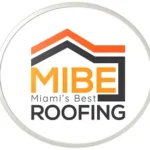Miami’s Roofing Regulations: What You Need to Know
As a homeowner or business owner in Miami, it’s crucial to understand the regulations and laws governing roofing in your area. The city’s building department has put in place various rules and codes to ensure that roofs are installed and maintained safely, efficiently, and in accordance with local building codes.
Permits and Authorization
Before starting any roofing project, you need to obtain the necessary permits and authorization from the City of Miami’s Building Department. This includes a permit to install, repair, or replace a roof, which requires submitting plans and specifications for the project. In addition, you may also need to obtain a special permit for certain types of roofing materials or systems.
Inspections and Compliances
During and after the roofing project, the City of Miami Building Department will conduct regular inspections to ensure compliance with roofing regulations. These inspections verify that the roof is installed according to the approved plan, meets local building codes, and is free of defects or hazards. Inspectors will check the roof’s structural integrity, waterproofing, and finish work to ensure that the roof is safe and compliant with regulations.
Materials and Systems
Miami has specific regulations regarding the use of roofing materials and systems. For example, roofers must use approved types of roofing materials, such as asphalt shingles or tile, and ensure that they are installed according to the manufacturer’s specifications. Additionally, the city prohibits the use of certain roofing materials, such as Styrofoam or synthetic underlayment, except in specific circumstances.
Roofing Design and Installation
Roofers in Miami must design and install roofs that meet or exceed local building codes, including the International Building Code (IBC) and the International Residential Code (IRC). This includes ensuring that the roof is designed for wind loads, seismic activities, and other environmental factors that may affect the structural integrity of the roof. Roofers must also provide a written warranty for materials and labor, and have a plan in place for addressing any defects or repairs.
Roof-Mounted Equipment and Equipment Installation
Roof-Mounted Equipment (RME) such as satellite dishes, solar panels, and HVAC units must comply with Miami’s regulations on RME installation. The city requires that RME be installed by a certified professional, and that a permit be obtained before installing any RME. RME must also be safely secured to the roof and meet local building codes to ensure public safety.
Roofing Maintenance and Repair
Regular maintenance and repair of roofs are critical to ensuring their longevity and preventing costly repairs. Homeowners and business owners must perform routine inspections and address any defects or damage immediately to prevent further damage from occurring. Miami’s Department of Code Compliance also encourages property owners to maintain an accurate record of all maintenance and repair work performed on their roofs.
Codes and Ordinances
Miami’s building codes and ordinances govern various aspects of roofing, including the Installation of roofing materials, Flashing and waterproofing details, and Roof-to-Wall connections. The International Building Code (IBC), International Residential Code (IRC), and the Florida Building Code (FBC) are all applicable to residential and commercial roofing projects.
Penalties and Remedies
Failure to comply with Miami’s roofing regulations can result in penalties and fines. The City’s Building Department may issue administrative citations or stop-work orders if a roofer fails to obtain the required permits, or if an inspection reveals non-compliant work. Homeowners or business owners who fail to comply with regulations may be liable for damages or harm caused by a non-compliant roof.
Public Safety
Roofing regulations in Miami are ultimately designed to ensure public safety. A non-compliant or poorly maintained roof can pose a significant risk to occupants, pedestrians, or emergency responders. By requiring roofers to follow building codes and regulations, Miami’s building department aims to prevent accidents, injuries, and fatalities caused by falling debris, structural collapse, or other roofing-related hazards.
Conclusion
By understanding and complying with Miami’s roofing regulations, you can ensure that your residential or commercial property has a safe, efficient, and well-maintained roof. Whether you’re planning a new roofing project, performing routine maintenance, or addressing a repair, being aware of the regulations governing roofing in Miami is critical to avoiding costly penalties or fines. freeslots dinogame telegram营销




